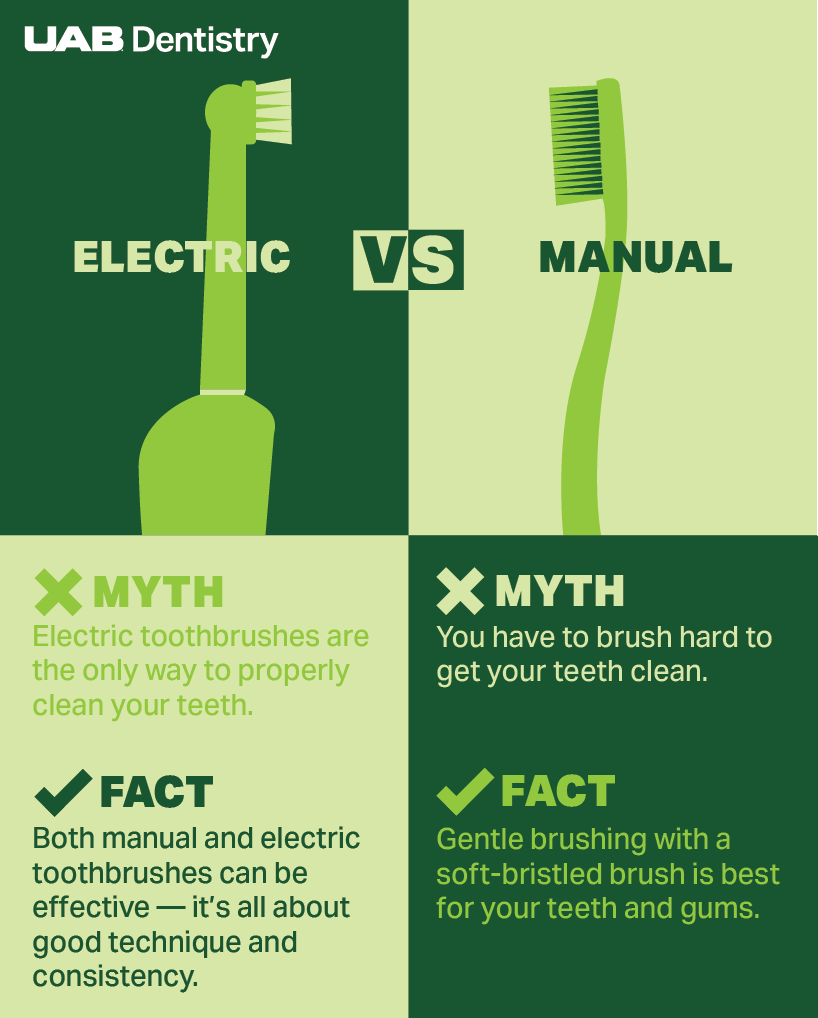Choosing the right toothbrush might seem simple, but when it comes to keeping your smile healthy, the decision between electric and manual can actually make a big difference.
 Amy Cooper, RDH, a dental hygienist at UAB Dentistry Dothan, points out that the American Dental Association (ADA) endorses both electric and manual toothbrushes for plaque removal. She emphasizes the most important factor isn’t just the tool you use — it’s how you use it.
Amy Cooper, RDH, a dental hygienist at UAB Dentistry Dothan, points out that the American Dental Association (ADA) endorses both electric and manual toothbrushes for plaque removal. She emphasizes the most important factor isn’t just the tool you use — it’s how you use it.
"The best toothbrush is the one you use consistently and accurately," Cooper said. "But electric toothbrushes can offer some advantages for certain people."
"The best toothbrush is the one you use consistently and accurately." — Amy Cooper, RDH
Electric toothbrushes can be especially helpful for people who struggle with manual dexterity, like young children or older adults, patients who tend to brush too hard and risk enamel damage, and anyone who wants extra help ensuring a thorough clean. Many electric toothbrushes come with timers, pressure sensors, and multiple cleaning modes, which can make a big difference.
"For people who brush quickly or miss spots, the technology of today’s electric toothbrushes can really help improve overall oral health," Cooper points out.
But manual brushes have been getting the job done for generations and they’re still a perfectly good choice. Manual toothbrushes are affordable, easy to travel with, and don't need charging.
"With good technique — brushing for two full minutes and reaching all areas of the mouth — a manual toothbrush can be just as effective as an electric one,” she continued.
Cooper reminds patients that regardless of which brush you choose, you should brush at least twice daily for at least two minutes each time. She recommends using a soft-bristled brush to avoid damaging your gums and replacing your toothbrush or electric brush head every 3-4 months. Be sure to pair brushing with daily flossing for best results.
"A lot of people are surprised to hear that technique is more important than the brush itself," Cooper shared. "Taking your time, using gentle pressure, and covering every tooth makes the real difference."
It's also worth noting that electric toothbrushes can be beneficial for people with braces or other dental appliances, as they can help clean around brackets and wires more effectively. But the choice ultimately comes down to personal preference and comfort.
Whether you opt for an electric or manual toothbrush, maintaining good oral hygiene practices is key to a healthy smile.